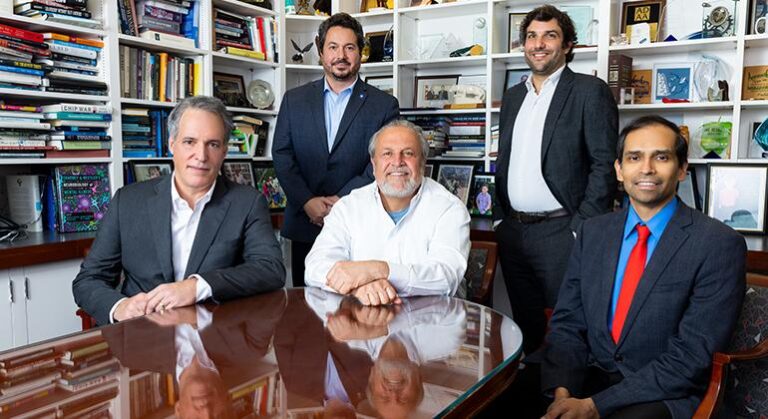Brazil has taken a significant step toward transforming its clinical research landscape with the recent enactment of a groundbreaking law aimed at streamlining regulatory processes and enhancing ethical standards. This new legislation is poised to redefine how clinical trials are conducted across the country, promising increased efficiency, greater transparency, and boosted opportunities for innovation within Brazil’s growing biopharmaceutical sector. As industry leaders and international partners closely monitor these changes, the law’s impact on global clinical research collaborations and patient access to cutting-edge therapies is becoming increasingly clear.
Brazil’s New Clinical Research Law Transforms Regulatory Landscape
The introduction of Brazil’s new clinical research legislation marks a pivotal shift in the regulatory framework governing medical studies throughout the nation. This law streamlines approval processes, reduces bureaucratic delays, and establishes clearer guidelines for ethical compliance. Researchers and sponsors now face a more transparent pathway, encouraging greater participation from international stakeholders and fostering innovation within Brazil’s healthcare sector.
Key features distinguishing this transformation include:
- Accelerated Review Timelines: Ethics committees must now conclude assessments within mandatory deadlines.
- Enhanced Patient Protections: Stronger mandates for informed consent and data confidentiality.
- Centralized Regulatory Oversight: Consolidation of multiple agencies into a unified authority streamlining communication and enforcement.
| Aspect | Previous Regulation | New Law Impact |
|---|---|---|
| Approval Time | Up to 180 days | Reduced to 90 days |
| Ethical Oversight | Fragmented committees | Unified central committee |
| Patient Consent | Minimal guidelines | Strict documentation and monitoring |
Implications for Sponsors and Investigators Navigating Compliance Challenges
With the enforcement of Brazil’s new clinical research legislation, sponsors and investigators face a significantly evolving regulatory landscape that demands heightened vigilance and adaptability. Compliance is no longer a peripheral consideration but a central pillar underpinning trial design, execution, and reporting. Key challenges include meticulous documentation to meet updated ethical standards, revised informed consent protocols, and stringent data protection requirements. Non-compliance risks have increased, with potential sanctions that could delay projects or jeopardize partnerships.
To effectively navigate these changes, stakeholders should focus on:
- Implementing robust internal audit systems to monitor adherence in real time
- Investing in targeted training programs for research teams and institutional review boards
- Establishing proactive communication channels with regulatory bodies to clarify ambiguities promptly
| Compliance Aspect | New Requirement | Sponsor/Investigator Action | |||||||||||||||
|---|---|---|---|---|---|---|---|---|---|---|---|---|---|---|---|---|---|
| Informed Consent | Clearer language, biometric verification | Revise consent forms & incorporate biometric tools | |||||||||||||||
| Data Security | Enhanced patient data encryption | Upgrade IT infrastructure and train staff | |||||||||||||||
| Ethics Committee Oversight | Accelerated review timelines | Strategic Recommendations for Leveraging Opportunities in Brazil’s Evolving Market
To fully capitalize on the burgeoning opportunities within Brazil’s redefined clinical research landscape, companies must prioritize agile regulatory compliance and local collaboration. Engaging early with regulatory bodies to navigate the nuances of the new legal framework can accelerate study approvals and reduce bottlenecks. Moreover, forming partnerships with local research institutions and contract research organizations (CROs) not only enhances site selection efficiency but also builds trust within the Brazilian medical community, crucial for patient recruitment and retention. Leveraging digital health tools to streamline data collection and remote monitoring will further position stakeholders at the forefront of innovation. Investment in workforce development emerges as another critical strategy, given the industry’s increasing demand for skilled professionals adept in the updated legal and operational standards. Companies should consider targeted training programs emphasizing ethical conduct and data integrity to ensure compliance with the new mandates. Below is a snapshot of key strategic elements for success in this evolving market:
In ConclusionAs Brazil’s new clinical research law takes effect, the country stands at a pivotal juncture in modernizing its medical research landscape. By streamlining regulatory processes, enhancing ethical standards, and fostering greater collaboration between public and private sectors, the legislation promises to accelerate innovation while safeguarding patient rights. Stakeholders across the board are watching closely to see how these changes will position Brazil on the global stage of clinical trials. Ultimately, this law marks a significant step toward advancing healthcare outcomes and research excellence in one of Latin America’s most vital markets. |




